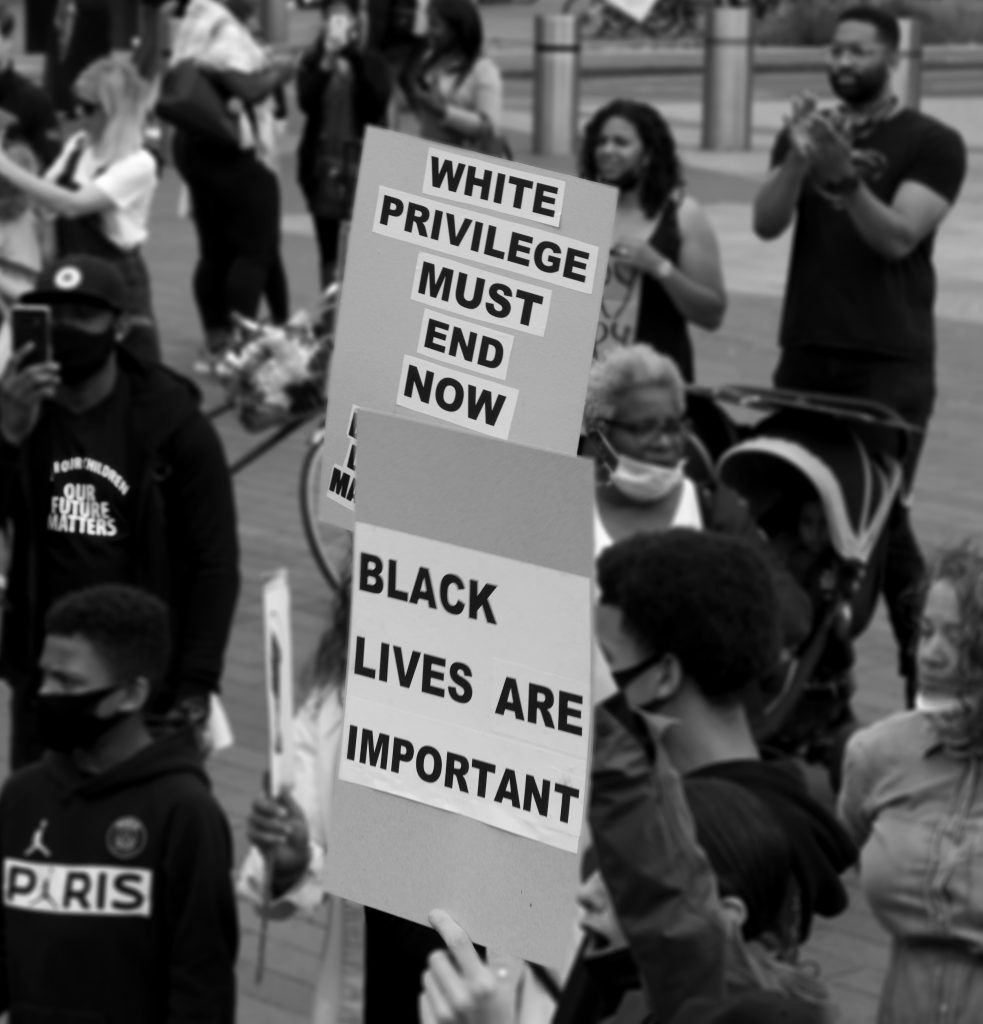
It has been 122 days since the death of George Floyd sparked uproar in communities around the world, and thrust the BLM movement into the public eye, bringing the issue of white privilege to the forefront once again. But how can we acknowledge our white privilege, and use it to instigate a move towards equality?
White privilege means that none of the problems you have ever encountered have been because of the colour of your skin. Although we live in a society that prides itself on rewarding people for their achievements, this isn’t always the case, as systemic racism means that ethnic minorities are prevented from achieving the same success as their white counterparts regardless of how hard they work. White privilege has existed for so long that it is taken for granted because, for white people, it is what’s ‘normal’. The biases and practices which exist oppress people of colour.
White privilege means;
- a white person going into a shop, sees themselves represented in the advertising there;
- when buying makeup there are so many pale shades available to give people of lighter skin tones the ability to find the perfect match;
- the plasters bought in big packs always blend in with white skin;
- the shampoos on the shelves are catered to white hair types;
- white people are never posed the question of where they’re really from, even if they’ve told you that they were born in the UK;
- Black people in England & Wales were 9x more likely to be stopped and searched than white people in 2018.
By educating ourselves on the privileges we are afforded, we can begin to unlearn the behaviours of our predecessors. We must recognise the origins of white privilege and the institutionalised racism that exists in the foundations of every system. It is important to remind ourselves that white privilege exists because of an intricate history of racial bias.
Acknowledging white privilege means not staying silent or complying with the biases that exist in our current institutions. The system won’t change on its own, and without protest from white peers, how can we hope to make a difference? Now is the time where we need to use this privilege to support the oppressed.
How to use your white privilege to instigate change
Sign petitions. Stay educated. Hold yourself and those around you accountable. Use your voice. Teach yourself where your privilege exists. Support black voices, black businesses. Vote.
Racism in the UK
During recent events that have been shown in the media, most of what we see is in America, however we shouldn’t ignore the injustices that also happen in the UK too.
In 2019, The Conversation did a survey on biological racism (“the belief that there are innate differences between racial or ethnic groups”) using questions used in the European Social Survey.
They asked participants 2 questions the first was whether they agreed that “some races or ethnic groups are born less intelligent than others”
- In 2014, 18% of British public agreed.
- In 2019, 19% agreed.
The second question was whether “some races of ethnic groups are born harder working than others”
- In 2014, 44% agreed.
- In 2019, 38% agreed.
This illustrates that a percentage of the British population believe that your ethnicity determines your disposition to work hard and your intellectual capabilities.
The presumption around what a guilty person looks like has demonstrated racial profiling in action as despite its disputed success, it is still continued in black communities. MP Diane Abbott brought to attention the incredibly disproportionate stop and search after fellow Labour MP Dawn Butler was stopped by the police in August. Abbott calls this “non-evidence-based stop and search” and although the police view it important in order to stop crime, Dr Krisztian Posch (LSE) points out that the police are less likely to detect crime by employing this. Despite this debate around the success of stop and search it is still used excessively on black people which often leads to racial profiling.
Racism exists all around us, in the form of microaggressions; view the full list here. Some examples of microaggressions are; a white person clutching their purse or checking their wallet as a POC passes, security guards following ethnic minority customers around shops (assuming criminality based on one’s skin colour), or denying your racism because you have black friends.
Thea Drake and Renée Lewis
